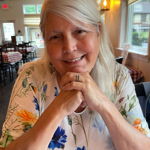Using IFS Strategies and Experiential Practices in Resolving Trauma and Attachment Wounds
This is a two day training beyond the basics in the use of the Internal Family Systems (IFS) Model of Psychotherapy with clients who have experienced trauma and attachment wounds. Participants are expected to have already had basic training in the Internal Family Systems Model via an introductory training or have read books outlining the basic concepts of the model such as Internal Family Systems Therapy (2nd Ed.) by Schwartz and Sweenzy or No Bad Parts: Healing Trauma & Restoring Wholeness with the Internal Family Systems Model by Richard Schwartz. Basic information on the IFS Model is also available at the IFS Institute website at https://ifs-institute.com/. The basic concepts of the IFS model will not be focused on in this intermediate training.
On day 1 in the morning the trainers will present how the IFS model conceptualizes trauma and attachment wounds in the individual. Exploring trauma and attachment injuries that occurs due to the lived experiences of abuse of any kind will be discussed as well as trauma and attachment wounds that occur due to the lack of responsive and sensitive care in childhood. In the afternoon a brief overview of Somatic IFS (SIFS) will be presented and then the instructors will teach some experiential strategies using some of the five practices of SIFS (somatic awareness; conscious breathing; radical resonance; mindful movement; attuned touch) that safely bring the body based parts of the traumatized individual into an integrated healing experience.
On day 2 the presentation in the morning focuses on types of dissociation including the extreme presentation of Dissociative Identity Disorder and how the IFS model conceptualizes and works with these parts in the individual client's system. The use of the Dissociative Experiences Scale (DES) in zeroing in on the main dissociative subtype a client may be using will be discussed and participants will be given the opportunity to use that public domain scale and a subtype distinguishing aid (developed by one of the trainers) to assist in clarifying the dissociative subtype a client in their caseload may be presenting. The afternoon of day 2 focuses on advanced parts mapping healing processes and participants will be doing their own parts maps in response to a client they feel activated by as well as the parts map of a client in their caseload. The trainers will demonstrate strategies to proceed or advance in the healing processes using parts mapping and externalization of parts.
Featured Speakers

